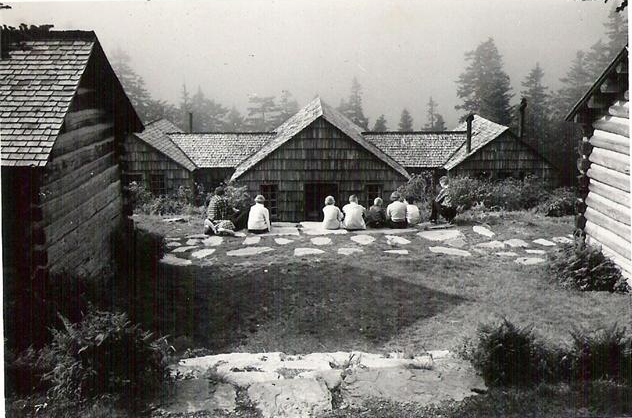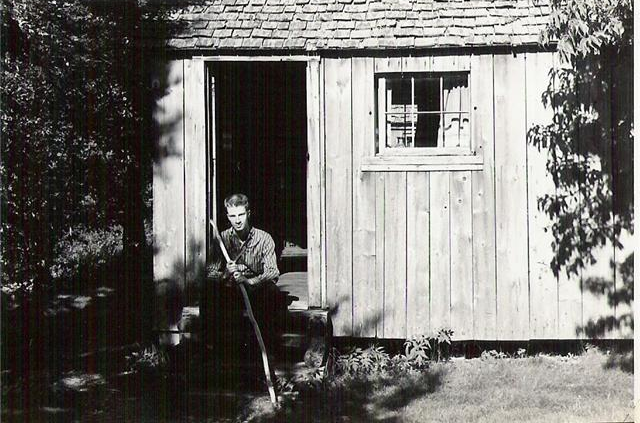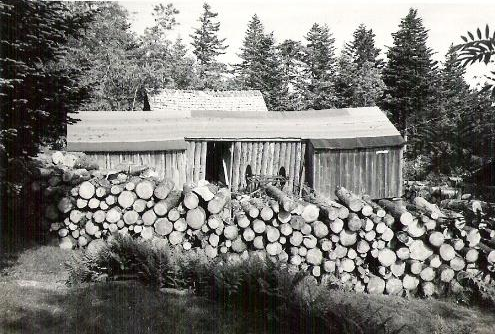| LeConte Lodge Alumni Site |
Ken Attenhofer's Photos;
Page Three
Here are photos of buildings at LeConte Lodge.

Guests seated on the stone stairs leading into the main lodge.
This photo is looking north toward the East Tennessee valley -- which is socked in with clouds. The building in the center houses the dining room (the main, central section); kitchen (the right wing with the two stove pipes coming out of the roof); and a bedroom where the owners and their children slept (left wing)
The building on the left side of the photo is the Old Lodge -- it contains three bedrooms and a central room with big fireplace. The building on the right side of the photo is the New Lodge -- two bedrooms and a central room with fireplace. The names Old and New Lodge refer to when they were built -- I don't recall the dates but the Old Lodge was several years older than the New Lodge.
To the left and right of the camera are two rows of single cabins, each with a wood-burning stove, table, two chairs, kettle, wash basin, the double bunk beds -- six cabins in all -- three to the right, three to the left.

Cabin #6.
Here is a photo of Ken sitting in the front door of Cabin #6 -- this is one of the small cabins -- six of them. This one burned down at some time but I don't recall the story. One-room cabin, double bunk beds, wood-burning stove, wash basin, bucket for getting water from the spring, kettle for heating water, pegs on the walls to hang your clothes.

Woodshed with generator house in background.
We heated and cooked with wood. Because the Lodge is located within the Great Smokies National Park, the National Park Service controlled our wood-cutting operations. We were allowed to cut downed trees for firewood. Fortunately, when I worked at the Lodge, there were large areas where trees had been blown down by storms and we cut these trees. HOWEVER -- the trees were all hemlock, spruce, and fir -- softwood that burned fast and had little heat value. We sawed the trees into these lengths, then we split these round blocks into sticks of wood that were used in the heating and cooking stoves.
Inside the generator house was an ancient Onan generator. Occasionally we cranked up the generator to power a few electric lights or the water pump. As I recall, we ran the generator only a few minutes each week, mainly to pump water when we all took a bath on Saturday afternoon.
| Back to page one of Ken's photos |
| Back to page two of Ken's photos |
| Forward to page four of Ken's photos |